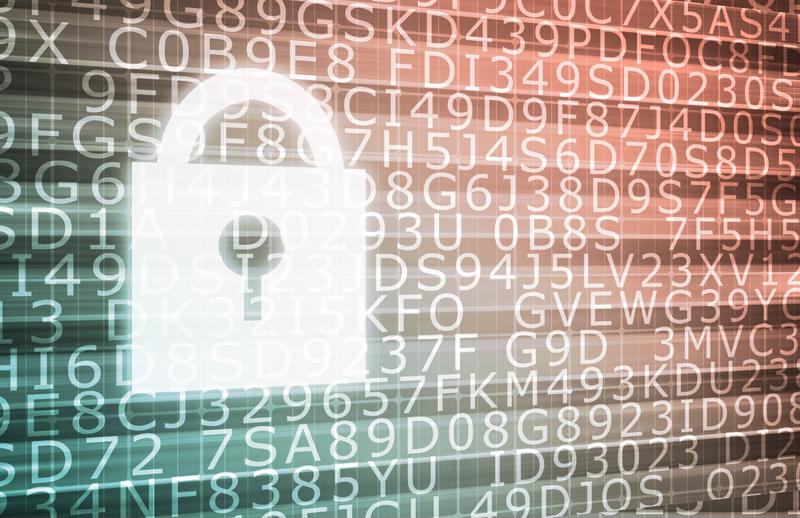Cybercriminals have been extremely busy recently. According to a survey from CFO Magazine and Duke University, more than four out of five businesses in the U.S. have fallen victim to a cyberattack in the past. Hacking is an incredibly lucrative venture, and this success rate shows that the malicious individuals behind these intrusions are willing to go after companies of any size from any industry.
Despite this revelation, your organization isn’t completely helpless when it comes to preventing cyberattacks. However, in order to get your business ready for the hacking perils it might someday have to deal with, it’s vital that you know exactly what the effects of a major data breach are, and what that can do.
Your customer image is going to be affected following a breach
By far, the most devastating effect of a data breach is how the public's perception will be altered following the incident. Like any successful relationship, the customer-vendor dynamic revolves around trust. Sadly, when your company becomes the subject of a hack that leaks personal information, consumers are going to question your ability to keep their data safe in the future.
"It's very hard to regain control over your personally identifiable information once its out there."
While it may seem callous to victim blame in this regard, the reality of the situation is that it's very hard to regain control over your personally identifiable information once its out there. What's more, doing business in the modern world demands the exchange of a lot of private data, such as credit card numbers or even physical addresses. Letting this information slip into the hands of hackers, regardless of whose "fault" it is will most likely turn your customers against you.
In fact, a study from Centrify found that two-thirds of U.S. customers stated that they'd probably take their business elsewhere if their main service provider got hacked. Consumers are generally extremely loyal, but only to a point. Not being able to properly safeguard their information is a major violation of that relationship, and companies can expect to see a major drop in sales following the announcement of a data breach. Many might even have to close up shop, as the U.S. Securities and Exchange Commission has stated that around 50 percent of small businesses go belly up in the six months following a successful attack.
Healthcare is one of the biggest targets
Although organizations within any industry can find themselves at odds with a hacker, healthcare is by far one of the most targeted sectors. Data from the Office of Civil Rights showed that roughly 113 million healthcare records had fallen into the hands of cybercriminals in 2015. But why would hackers want to go after the people who are trying their hardest to literally save lives?
To begin, medical institutions need to hold onto a lot of personal information pertaining to their patients. This data could be anything from payment records to embarrassing medical problems the person could be having, both of which can be leveraged by a hacker for personal gain. The other major problem is that healthcare organizations generally aren't putting in the correct amount of funding to mitigate the risks of an attack.
A survey from HIMSS Analytics and Symantec discovered that a majority of medical facilities used less than 3 percent of their total IT budgets in order to improve the cybersecurity of their data systems. In fact, around 80 percent said that they put less than 6 percent of the tech budget toward these measures. To put this into context, the same report stated that the average financial organization puts between 12 and 15 percent of their IT budget into their data security.
Both of these factors combined create the perfect conditions for a successful hack. Cybercriminals know they can either steal or extort money from patients using the medical information they take, and they also know the institutions housing this data don't have many defenses set up to stop them.

How are hackers getting this data?
One of the main problems within cybersecurity is the fact that while the target has to close every single vulnerability to keep a hacker out, the cybercriminal only needs to find the one they forgot about to get in. However, there are some tried-and-true tactics that these malicious individuals use on a consistent basis.
Out of these, perhaps the easiest in terms of effort expended by the hacker is the phishing campaign. By masquerading as someone reputable via email, cybercriminals can often get victims to click a link that infects their computer. In fact, many of these scams attempt to simply ask people for their login credentials by pretending to be an authority figure.
These schemes are incredibly effective, with Verizon's 2016 Data Breach Investigations Report having found that roughly 12 percent will click on a link in a phishing email. While that number may seem low, hackers boost their chances of success by sending out a huge volume of these messages, hoping that a small fraction will end up netting them some valuable information.
"A significant portion of breaches can be traced back to physical problems."
On top of this, a significant portion of breaches can be traced back to physical problems. The same Verizon study found that just under one-fifth of all "security incidents" were the result of theft or loss. Healthcare is especially notorious for this, with a whopping 32 percent of breaches having to do with these kinds of issues.
What can you do to avoid these problems?
Despite these very real threats, organizations can take some steps to help lower their chances of becoming the victim of an attack. Spending more of the IT budget on cybersecurity is obviously going to help, but that's often much easier said than done. One action companies can easily take, however, is to spend some time training employees on the dangers of phishing.
A major point of this should be making sure workers are triple-checking the email addresses that send any message requesting private information. Hackers will very often create account names that look almost exactly like ones that employees are used to dealing with, using tactics such as replacing an "n" with an "m." Therefore, constant vigilance is needed in order to ward off any phishing campaign.
On the physical security side, company administrators need to ensure that areas containing paper documents are properly contained. These sections need to be locked up at all times, with constant surveillance in order to lower the risks of physical theft.
That said, another way to lower the risks of a data breach through these means is by investing in Fax over IP. FoIP is seen by many as an incredibly secure means of document transfer, and for good reason. This technology completely avoids the phishing problems of email, as hackers simply can't send out mass faxes in the same way that they can with email. What's more, FoIP cuts down on the amount of physical documents within a facility, as it can actually send faxes via the internet. This is especially advantageous for those working in healthcare, an industry that often has to rely on outdated legacy fax machines. FoIP is HIPAA compliant and doesn't require facilities to force their partners to change anything, which helps make the transition to better security smooth.
Enhance enterprise communication, collaboration and compliance efforts with a proven FoIP solution from FaxCore. Contact FaxCore today to learn more about their 'Partly-Cloudy' fax solutions.





